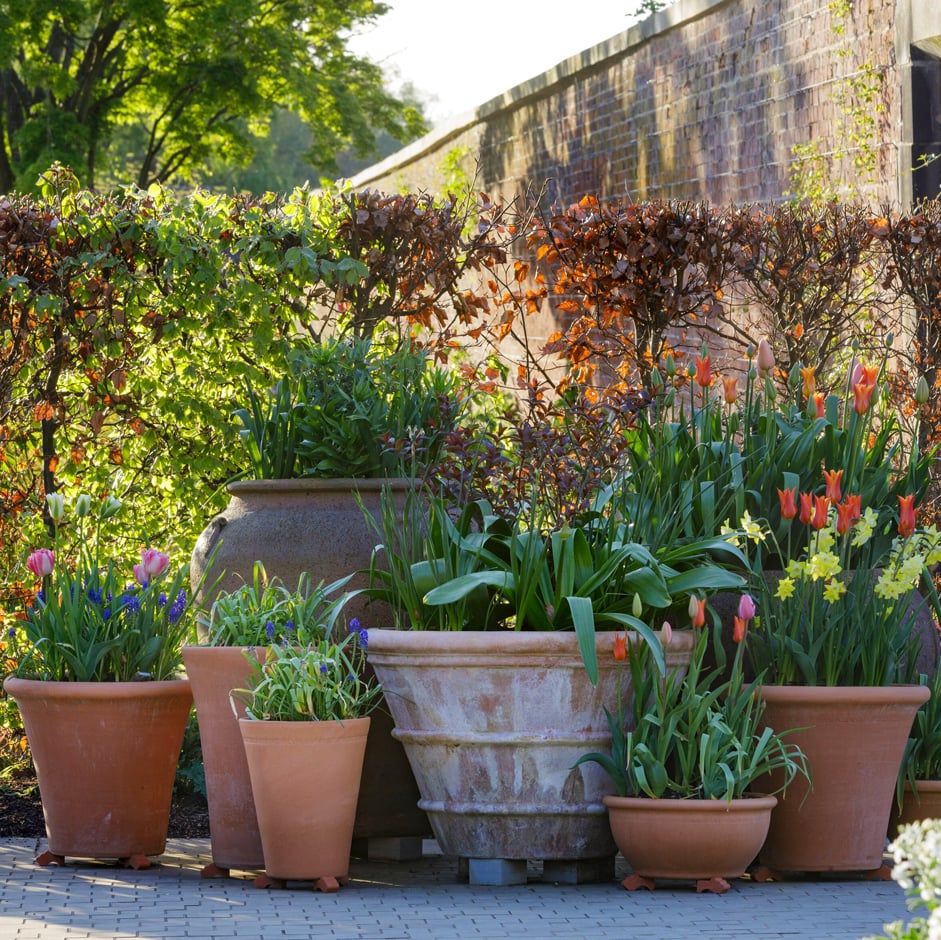
Introducing...
Calluna
Common name: Ling, Heather
Calluna are types of heather that make great evergreen ground cover in an sunny area of the garden. Different cultivars will provide a spread of long-lasting flowers from July until November and, planted with other heathers such as erica and daboeacia, you can have flowers all year round. ~They are good for encouraging wildlife – bees and other beneficial insects love the pollen from these beautiful flowers. Calluna are great for containers too!
Looks
Calluna have white, pink or purple flowers and there is fantastic variation in leaf colour, ranging from golden yellows to burnt orange and reds. Some foliage colours change with the seasons.
Likes
Calluna need neutral to acidic growing conditions, which means a soil of pH of 6.5 or less, ideally pH 5.5. They prefer light sandy soil, enriched with organic matter so mulch with leaf mould or composted pine needles.
Dislikes
Calluna dislike alkaline soils, wet soils and shady areas, but tolerate light shade from high-canopied trees. They do not like being pruned too hard into woody stems, so trim off the flowering stems after they bloom each year.
Did you know?
The National Collection of Heathers, (Erica, Calluna and Daboecia) is held at RHS Garden Wisley, showcasing over 1000 cultivars.
Growing guide

How to grow callunas
All the information you’ll need to grow and care for Calluna in your garden.
Calluna we recommend
Calluna vulgaris 'Kinlochruel' (d)
heather 'Kinlochruel'
- 0.1–0.5 metres
- 0.1–0.5 metres
Calluna vulgaris 'Darkness'
heather 'Darkness'
- 0.1–0.5 metres
- 0.1–0.5 metres
Calluna vulgaris 'Alexandra'PBR (Garden Girls Series)
heather 'Alexandra'
- 0.1–0.5 metres
- 0.1–0.5 metres
Calluna vulgaris 'Kinlochruel' (d)
heather 'Kinlochruel'
- 0.1–0.5 metres
- 0.1–0.5 metres
Calluna vulgaris 'Darkness'
heather 'Darkness'
- 0.1–0.5 metres
- 0.1–0.5 metres
Calluna vulgaris 'Alexandra'PBR (Garden Girls Series)
heather 'Alexandra'
- 0.1–0.5 metres
- 0.1–0.5 metres
Useful Advice
Acidifying soil

Growing plants in containers
Soil: understanding pH and testing soil
Get involved
The Royal Horticultural Society is the UK’s leading gardening charity. We aim to enrich everyone’s life through plants, and make the UK a greener and more beautiful place.